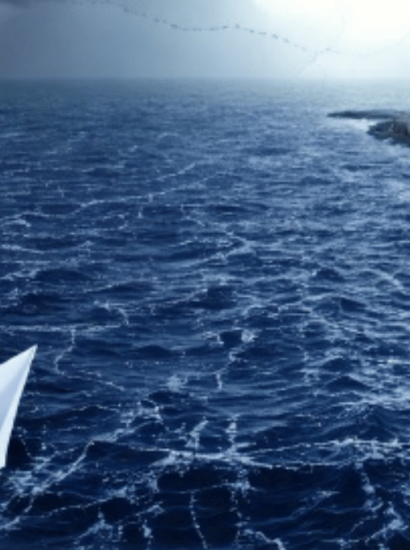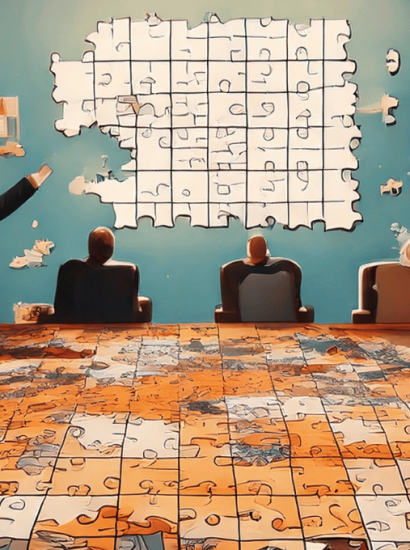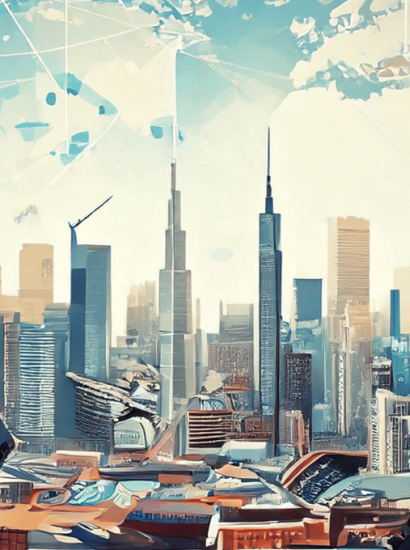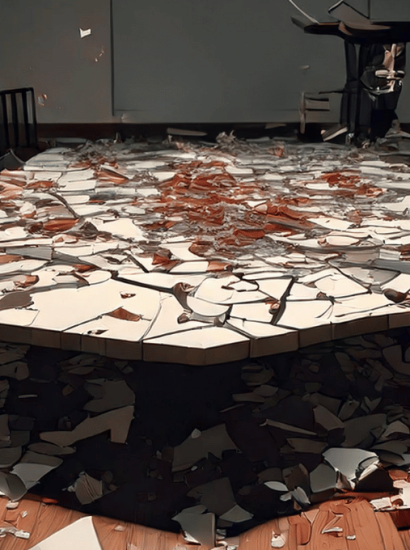This post is also available in: ΕΛΛΗΝΙΚΑ (GREEK) TÜRKÇE (TURKISH)
The mother. The most resilient creature in Nature. For the sake of her child, she endures the most excruciating pain. She endures hardship. She endures insults. She endures hunger and thirst. She endures sweltering heat and winds. She endures all but this: Standing over the wreckage caused by the earthquake while knowing that beneath the tonnes of rubble, lies her child. It’s that voice that until yesterday she could hear pleading to her, “mommy help me”, “mommy I don’t want to die”, “mommy I’m thirsty”… Tonight she stands atop the rubble, there in Adıyaman, near where Turkish Cypriot rescuers are in a race against time. Where she seems to still hear the voice of her child. The temperature is three degrees below zero. Her feet are frozen. As are her hands. Her tears, which have not stopped flowing down her cheeks since Monday, are frozen too. As the rain and wind beat her face, memories torment her relentlessly. She remembers those first moments in Famagusta, holding her newborn baby in her arms. She feels his lips sucking at her breast and the memory cuts her chest in two. She remembers his first steps and her knees buckle in the freezing cold. She kneels down onto a piece of a wall that once formed part of the Isias Hotel. A name that is to her – and many others – the most painful thing that could befall a person. That amounts to a mass grave, in which her child lies buried. Slumped against the collapsed wall, she feels two strong hands lifting her upwards. It is her neighbour. The father of her son’s best friend, whose child is also beneath the rubble. A father whose life is also now in ruins.
Almost thirty Turkish Cypriot families lost children and parents and teachers and the world as a whole under the rubble left behind by the earthquakes. All were members and chaperones of the Turkish Cypriot volleyball team of the Famagusta vocational high school. All were children of the sea-kissed land, who were passionately pursuing their dreams for life and noble sportsmanship and a bright future. A future that has now dimmed, extinguishing too the lives of their loved ones. Those who from now on will live a life in ruins… “The poet, full of tears, sees the desolate states, which have become the gates of Hades, and utters his protest. Death is everywhere, an earthly cloud that darkens the sun,” writes Tasos Lignades on [poet Odysseus Elytis’] ‘The plot with Nettles’. And at once the ten provinces flattened last Monday by the 7.8 and 7.5 magnitude earthquakes in Turkey are ‘revealed’ as a hell on earth, with a smaller earthquake affecting neighbouring Syria. Estimates say the death toll will reach 100,000! They’re even saying that it will take two decades to rebuild in order to house the people!
In the next news item, on TV we saw Volodymyr Zelenskyy in Brussels, asking the EU27 countries, 15 days before the one-year anniversary of the onset of the Russian invasion of Ukraine, for aircraft and tanks worth billions of dollars “as soon as possible”. Macron and Scholz pledged to continue to support Ukraine militarily as well, “for as long as it takes, until victory.” This despite the fact that the New York Times has revealed, citing estimates by American and Western officials, that the Russian army has lost almost 200,000 people in Ukraine, as has the Ukrainian army. Wouldn’t it be better if the Europeans had Putin and Zelenskyy bury their dead and sit down for peace talks and use the billions they’re pouring into the war meat grinder to build shelters for the millions of homeless earthquake victims in Turkey and Syria and to rebuild Ukraine? If not that then to feed the millions of people who are starving in the twenty-first century.
Odysseus Elytis cautions us with the words: “The final result will depend on us. On us will depend the heaven or hell we will build. Our fate is in our hands.” Exiled poet, in your century, what do you see? Do you see Varosha? Do you see Morphou? Do you see Karpasia? Is our fate really in our hands? It was in Anastasiades’ hands and in Crans-Montana he traded it for ‘golden passports’. And then he watched Varosha being colonised and sold us trilaterals and quadrilaterals, thinking us to be so detached from reality… We are! If one sees on Social Media the dregs of a so-called ‘political culture’, with people rejoicing at the fact that the earthquakes in Turkey have left thousands dead, while others invoke the ‘prophecies’ of novel saints involving the total destruction of the neighbouring country, why shouldn’t they believe in trilaterals and the East Med? After all, even during the period leading up to the elections, which we recently experienced, the East Med had a part to play. All we are left with now is, as the beloved Elytis says, “amid the sadness of the vast mediocrity that drowns us at all turns, I take comfort in the fact that somewhere, in some crummy little room, some strong-minded people are struggling to vanquish the decay”…
Have a good vote and come Monday if you find the time, drop by the Red Cross and leave a warm piece of clothing for the children of Adıyaman. We could be next, you never know. We’re right next door, and earthquakes don’t need a passport…
Source: MEMORY CUTS THE CHEST IN TWO







[…] ENGLISH (İNGİLİZCE) ΕΛΛΗΝΙΚΑ (YUNANCA) […]
[…] ENGLISH (İNGİLİZCE) ΕΛΛΗΝΙΚΑ (YUNANCA) […]